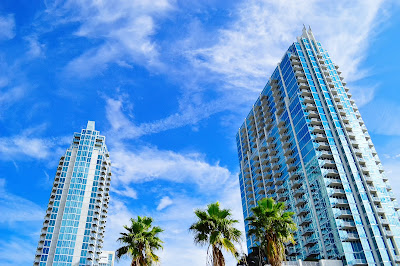What Is a Condominium Lawyer? Protecting Your Rights and Interests in the World of Condos
When it comes to living in a condominium, legal issues can arise that require the expertise of a specialized legal professional. Condominium lawyers, also known as condo lawyers, play a crucial role in safeguarding the rights and interests of both individual unit owners and condominium associations. In this article, we will delve into the responsibilities of a condominium lawyer, the legal complexities they handle, and the reasons why consulting with a condominium lawyer can be invaluable for anyone involved in the realm of condominium living.
I. Defining Condominium Law:
Condominium law refers to the body of legal regulations and statutes that govern the creation, management, and operation of condominiums. This area of law encompasses a wide range of legal issues, including but not limited to property rights, governance, contracts, disputes, and compliance with local regulations.
II. The Role of a Condominium Lawyer:
A condominium lawyer is a legal professional with expertise in condominium law. Their primary responsibility is to provide legal guidance and representation to individual unit owners, condominium associations, developers, property managers, and other stakeholders involved in the condominium community. Some common roles and tasks performed by condominium lawyers include:
Drafting and reviewing legal documents: Condominium lawyers are adept at preparing and examining legal documents such as purchase agreements, bylaws, declarations, and amendments. These documents lay the foundation for the rights and responsibilities of all parties involved in the condominium community.
Resolving disputes: Disputes can arise between unit owners, associations, developers, or even with local government bodies. Condominium lawyers act as mediators and litigators to resolve these disputes, whether they involve breaches of contract, disagreements over maintenance responsibilities, or enforcement of condominium regulations.
Assisting with governance issues: Condominium associations are typically governed by a board of directors who must adhere to legal requirements and procedures. A condominium lawyer provides guidance on governance matters, including board elections, fiduciary duties, and compliance with local and state laws.
Handling real estate transactions: Condominium lawyers represent clients in the purchase or sale of condominium units, ensuring that the transaction adheres to legal requirements and protects the rights of their clients. They review contracts, negotiate terms, and conduct due diligence to identify any potential legal issues or liabilities.
III. Why Consult a Condominium Lawyer?
The complexities of condominium law necessitate the expertise of a specialized lawyer. Here are a few reasons why consulting a condominium lawyer can be crucial:
Understanding your rights and obligations: A condominium lawyer can help you understand the rights and obligations outlined in the condominium documents, ensuring that you are aware of the rules and regulations that govern your ownership and use of the property.
Resolving legal disputes effectively: Whether you are facing a neighbor dispute, a breach of contract, or a violation of your rights as a unit owner, a condominium lawyer can provide guidance and representation to help resolve the issue efficiently and protect your interests.
Navigating complex legal procedures: Condominium law involves intricate legal procedures and deadlines. A condominium lawyer has the knowledge and experience to navigate these complexities on your behalf, saving you time, effort, and potential legal pitfalls.
Conclusion:
In the intricate world of condominium living, a condominium lawyer can be an invaluable asset. Whether you are a unit owner, part of a condominium association, or involved in real estate transactions, consulting with a condominium lawyer ensures that your rights and interests are protected. By understanding the role and importance of these legal professionals, you can navigate the complex landscape of condominium law with confidence.
External Link: American Bar Association - Condominium Law
Note: The external link provided is for reference purposes and does not constitute an endorsement or affiliation with the mentioned organization.




Post a Comment
0 Comments